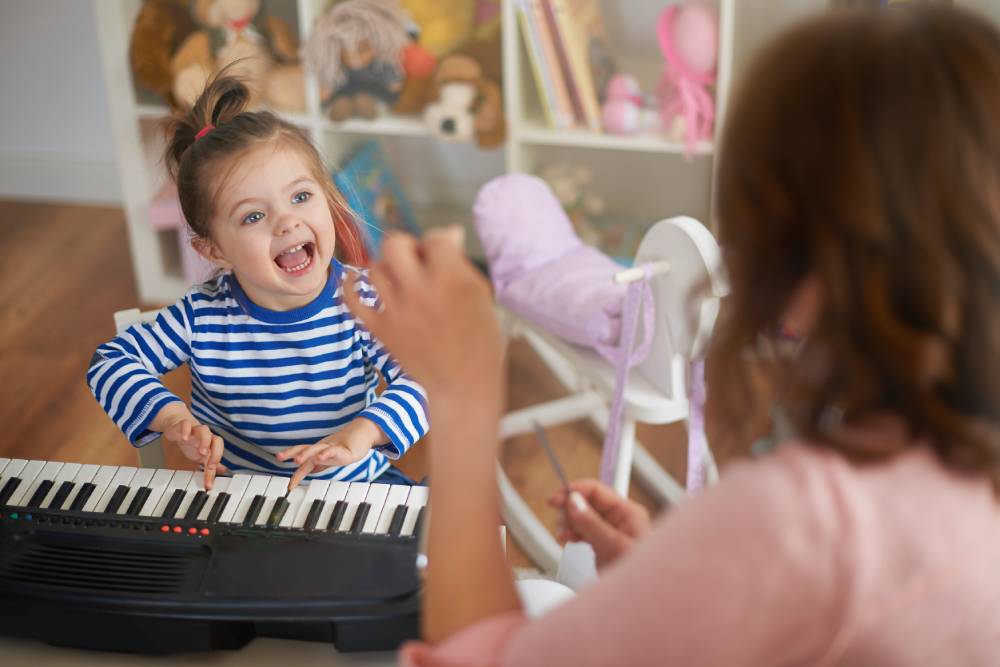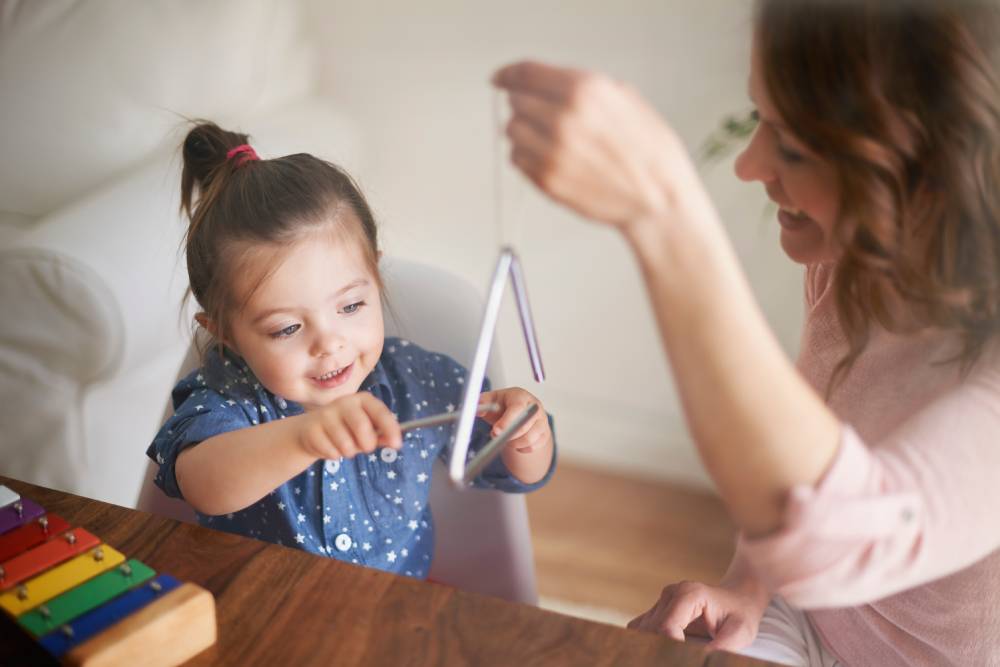Music has a magical way of connecting with people, and its benefits extend far beyond simple enjoyment. Furthermore, for children with ADHD, music therapy offers not only a unique but also an effective approach to managing symptoms. This evidence-based therapy utilizes rhythm, melody, and sound to promote emotional regulation, enhance attention, and improve behavior. Consequently, it has become a widely recognized method to support children in overcoming daily challenges and building essential skills.
What Is Music Therapy?
Music therapy is a structured therapeutic process where trained professionals use music to achieve specific goals. Moreover, these goals often target emotional, social, and behavioral development, ensuring holistic growth. For children with ADHD, music therapy provides not only a fun but also an engaging way to improve focus and self-regulation.
In addition, therapists may incorporate instruments, singing, or rhythmic activities to engage children effectively. Furthermore, each session is carefully tailored to the child’s needs, ensuring a personalized and impactful approach to therapy.
Why Music Therapy Works for ADHD
Music stimulates multiple areas of the brain, promoting better communication between regions. Therefore, it becomes particularly effective for children with ADHD, who often struggle with focus and self-regulation. By engaging both cognitive and emotional processes, music therapy helps children develop essential skills in a fun and interactive way.
1. Improving Focus and Attention
The structured nature of music, with its steady beats and rhythms, makes it easier for children to focus. For instance, activities like clapping to a rhythm or playing an instrument can train the brain to sustain attention over time. As a result, children gradually learn to concentrate better on tasks and reduce distractions, both at home and in school.
2. Enhancing Emotional Regulation
Music has a naturally calming effect on the mind, making it highly beneficial for emotional regulation. For example, ADHD sound therapy can help children reduce impulsivity while managing feelings like frustration or anger. Over time, the soothing rhythms create a sense of inner calm, enabling children to handle challenging situations more effectively.
3. Encouraging Social Interaction
Group music sessions provide an excellent platform for developing essential social skills. During these sessions, children learn turn-taking, active listening, and teamwork through interactive activities. Consequently, they build meaningful connections with peers and develop the confidence to navigate social settings more comfortably.
4. Boosting Self-Esteem
Mastering a musical skill, such as playing a tune or following a rhythm, gives children a profound sense of accomplishment. As they achieve these milestones, their confidence grows, reinforcing a positive self-image. Additionally, the encouragement and recognition they receive during therapy further motivate them to continue progressing.
Techniques Used in Music Therapy
Music therapy for ADHD uses various techniques to meet a child’s specific needs. These methods are designed to engage children and improve key areas such as focus, emotional regulation, and creativity.
- Rhythmic Activities
First and foremost, steady beats play a crucial role in improving concentration. They help children develop a sense of timing and order. For instance, drumming is a popular rhythmic activity that is not only fun but also strengthens attention span. - Active Listening
Additionally, therapists incorporate calming music to help children relax and focus. By listening to soothing tunes, children can reduce anxiety and enter a peaceful mindset. This practice prepares them for learning or social interaction. - Instrumental Play
Another effective technique involves playing an instrument. This activity enhances hand-eye coordination, while also encouraging creativity and self-expression. As a result, it provides children with a meaningful outlet for their emotions and imagination. - Songwriting
Moreover, songwriting offers a unique way for children to express themselves. Writing and composing songs helps them articulate feelings they might otherwise struggle to communicate. Not only does this process encourage emotional exploration, but it also fosters personal growth.
Incorporating these techniques into music therapy can greatly enhance the therapeutic experience for children with ADHD. Each method targets different aspects of their development, making it a well-rounded approach to treatment.
How Music Helps Improve Focus and Emotional Regulation
- Cognitive Benefits
Music therapy significantly enhances memory and attention span by engaging different areas of the brain simultaneously. Furthermore, the rhythmic patterns in music train children to focus and stay organized, improving their problem-solving abilities over time. As a result, they are better equipped to manage academic tasks and daily challenges effectively. - Behavioral Benefits
Through structured activities, music therapy reduces hyperactivity and impulsivity, helping children develop a sense of self-discipline. Additionally, the repetitive nature of musical exercises encourages better self-control, allowing children to manage their behavior more effectively in different situations. Over time, these improvements contribute to a more balanced and calm demeanor. - Emotional Benefits
Music provides a safe outlet for expressing emotions, making it easier for children to articulate their feelings without words. Moreover, the calming effects of soothing melodies help reduce stress and anxiety, promoting emotional stability. This creates a sense of peace and encourages positive interactions with peers and family members.


How Parents Can Support Music Therapy
- Incorporate Music at Home
Play calming music during homework time or bedtime. Encourage your child to explore musical activities outside therapy.
- Practice Together
Engage in musical games with your child. This reinforces the skills learned in therapy and strengthens your bond.
- Collaborate with Therapists
Maintain regular communication with the therapist to understand your child’s progress. Work together to implement strategies at home.
- Celebrate Achievements
Acknowledge your child’s progress, no matter how small. This boosts their motivation and helps them stay engaged in therapy.
The Role of Therapists in Music Therapy
Music therapists play a vital role in ensuring the success of ADHD sound therapy. They design sessions based on the child’s strengths and areas for improvement. By tracking progress, therapists adjust strategies to meet the evolving needs of the child.
Through their expertise, therapists also empower parents to use music-based strategies at home, ensuring a holistic approach to therapy.
Long-Term Impact of Music Therapy
Music therapy for ADHD offers long-term benefits that extend beyond the therapy room. Children who engage in music therapy develop critical life skills, including better focus, emotional resilience, and stronger social connections.
Moreover, the joy and creativity fostered by music stay with children, helping them navigate challenges as they grow.
Conclusion
Music therapy is a powerful tool for helping children with ADHD thrive. Its structured, engaging, and personalized approach makes it an ideal choice for addressing the unique challenges faced by these children.
By incorporating ADHD sound therapy, children not only improve focus and behavior but also experience emotional growth and build lasting skills. Parents and therapists working together can amplify these benefits, ensuring a brighter future for children.
At Twinkle Therapies, we specialize in innovative and child-centered therapy programs. Contact us today to learn how music therapy can transform your child’s life.
